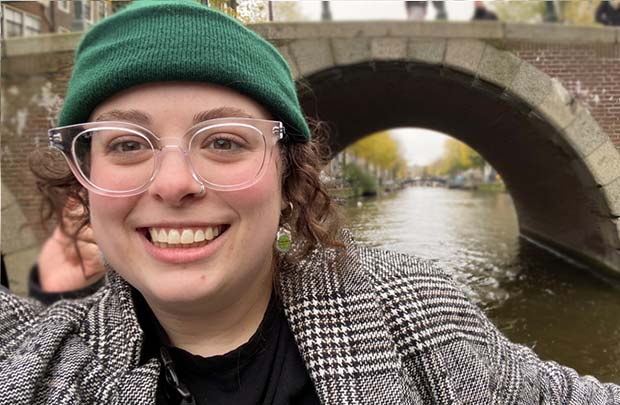
Maddie Dulle is a family advocate in New York State. She works with families who are interested in adopting older children. A mother Maddie worked with suggested that we feature her as an Outstanding Caseworker, writing:
“Maddie was there for us every step of the way. She’s the one who found our son on AdoptUSKids, and she has continued to check in with us weekly long after we reached the point where the agency didn’t need to be involved. Maddie is the first person I call when I need parenting advice, and her advice is always so empathetic and effective. She helps me consider my son’s perspective, and she’s so good at making us feel like whatever obstacle we are confronting is normal and surmountable. She’s an asset to families like ours.”
How do you work with families like this one?
I have a great job, because I get to work with families from the day they walk through our doors to the day they finalize adoption.
Most of that time is spent on the matching process, which can be a bit of a dance: I help people balance what they are looking for in a child with their lifestyle and their capabilities. Which is why I say I am sometimes in the position of taking off parents’ rose-colored glasses. Because making a good match is as much about understanding the child’s needs and history as it is about knowing how the family will respond to and accommodate them.
Once a family has made an informed decision and chosen to move forward, my job is to prepare them for placement. Part of that is ensuring they understand that adoption is a lifelong, unconditional commitment. Parents cannot have “bottom lines.” They are agreeing to meet their child’s needs and give them love and support to help them overcome past traumas.
How can people be effective in the matching process?
The name of the game is making an informed decision. The parents who wrote to you are a good example of doing that.
From the beginning, these parents were thoughtful and willing to have hard conversations with me about children’s behaviors and what they felt they could—and couldn’t—handle. Throughout the matching process, they put their noses to the grindstone and did a lot of the work, in terms of reading through written documentation to understand children’s needs and researching what it would take to meet them.
What are the qualities of a successful parent?
Being flexible, adaptable, and committed.
I tell every parent I work with: You’re going to love your kid every day, but you’re not necessarily going to like them! These are children who likely faced abuse, neglect, and a lot of loss. They are going to throw something different at you each day.
Also, in addition to committing to the child, it’s important to commit to being a lifelong learner. Because two or three weeks of training to get licensed doesn’t break the surface. Parents have to be willing to pivot: if X isn’t working, try Y. Successful parents are OK with failure, and they are always open to taking a new approach. Because just when you think a kiddo is going to zig, they zag!
You’ve been working with children and families for about three years. What attracted you to the field?
I knew that I wanted to work with children, and that I didn’t want to be in a classroom. My first job out of college was working for CPS, working in reunification services. I quickly realized that was too much for me. One year in, I was on my way to burning out.
Working as a family advocate allows me to support children in whatever ways I can and to satisfy my empathetic side without getting burned out. Because while I’m helping parents, they are helping themselves, too. There’s a balance there. I am not the sole change factor in their lives, but I’m helping them understand themselves and connecting them to resources and opportunities so that hopefully, in the end, they realize their dream of family.